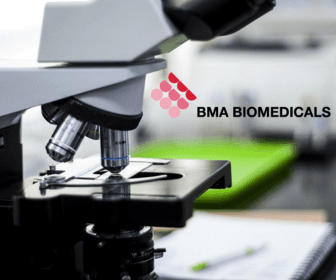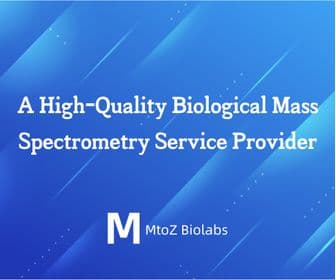Antibodies
Antibodies are large protein molecules produced by living organisms to monitor and protect that organism against foreign agents such as drugs, pollen, toxins, bacteria, and viruses. Antibodies may also form against the organism’s own cells or molecules, resulting in autoimmune diseases...
...such as rheumatoid arthritis.
All branches of medical science including genetics, immunology, drug development, therapeutics, and clinical testing, benefit from the use of antibodies.
The number of different antibodies produced by any organism is huge and varies widely between individuals, through the processes of gene recombination, mutation and class switching.
Commercially available antibodies for research and clinical testing are species-specific, and include both primary and secondary antibodies. Assay kits contain antibodies to test for the presence, amount of, or immune system response to a wide range of substances, such as sesame seeds, hazelnuts and walnuts; streptococcus, staphylococcus, mycobacteria, and listeria; HIV, HPV, influenza A and B, pneumonia, and Hepatitis C viruses; streptomycin, penicillin, and oxycodone; insulin, immunoglobulin and interleukin; and other proteins, hormones and amino acids that serve as biomarkers.
Laboratory equipment for use with antibody assays includes gel electrophoresis systems, plate imaging systems, laboratory information management systems (LIMS), liquid chromatography systems, surface plasmon resonance (SPR) systems, and magnetic bead labeling kits and readers.
Other laboratory consumables for antibody research include rapid test strips; Western blotting reagents; species-specific sera; stem cell factors; ligands; tag-affinity gel; and blocking solutions.
Browse the product range below or simply use the Search Tool above to help find the best products.
Once you have found a product, complete a ‘Get a Quote’ form and you will get the best price!
Showing 24 of 362762 results
Product A-Z
Hosts
Mouse
Conjugates
Unconj
Hosts
Mouse
Conjugates
Unconj
Applications
WB
Hosts
Mouse
Conjugates
Unconj
Applications
WB
Hosts
Mouse
Conjugates
Unconj
Hosts
Mouse
Conjugates
Unconj
Applications
WB
Hosts
Mouse
Conjugates
Unconj
Applications
WB
Hosts
Mouse
Conjugates
Unconj
Applications
WB
Hosts
Mouse
Conjugates
Unconj
Applications
WB
Hosts
Mouse
Conjugates
Unconj
Applications
WB
Hosts
Mouse
Conjugates
Unconj
Applications
WB
Hosts
Mouse
Conjugates
Unconj
Applications
WB
Hosts
Mouse
Conjugates
Unconj
Applications
WB
Hosts
Mouse
Conjugates
Unconj
Applications
WB
Hosts
Mouse
Conjugates
Unconj
Applications
WB
Hosts
Mouse
Conjugates
Unconj
Applications
WB
Hosts
Mouse
Conjugates
Unconj
Applications
WB
Hosts
Mouse
Conjugates
Unconj
Latest promotions
Spend less time on DNA cleanup so you can do more science. The MSB Spin PCRapace is the fastest way to purify your DNA from PCR, restriction digestion, and...
New brilliant antibodies, and new lower prices!For flow cytometry reagents in general, \"bright is better.\" The violet-excitable BD Horizon™ BV421 and...
As an incentive to qualify our BSA, we are offering a 20% discount when you purchase your first 100g, 500g or 1000g of any grade of Bovine Serum Albumin....
It is not every day that you are given something for nothing. We are giving away additional spectrophotometer software.Cecil Instruments have enhanced the...
For the past decade scientists have extensively used ATS secondary toxin conjugates to make their own targeted toxins for in vitro use.The ability to combine...
We're so sure that you'll prefer Cayman Assay kits over your present brand that we're willing to give you a free assay kit to prove it!
10% Discount on 2 Rabbit Polyclonal Antibody Service. With over 20 years experience, SDIX has developed into the premier US custom antibody producer,...
Did your supplier increase the price of Fetal Bovine Serum? Did they substitute the US Origin with USDA? Well say no more! Innovative Research is still...
Bulk Cytokines with Custom Vialing.20 - 50% off cytokines, growth factors, chemokines and more...For a limited time Cell Sciences is offering substantial...
Jenway’s 73 series spectrophotometer range provides four models with a narrow spectral bandwidth of 5nm and an absorbance range of –0.3 to 2.5A,...
Are you planning to have a customised antibody made for your research?Since 2000, Everest has been producing a catalog containing thousands of affinity...
Top suppliers
United States Biological
230753 products
Carl Zeiss Microscopy
27 products
Promega Corporation
11 products
Panasonic Healthcare Company
5 products
Life Technologies
1 products
Nikon Instruments Europe
11 products
Olympus Europa Holding GmbH
3 products
Leica Microsystems, Inc.
10 products
GE Healthcare Life Sciences
2 products
Tecan Trading AG
19 products
Beckman Coulter, Inc.
1 products
AB SCIEX
3 products
BD (Becton, Dickinson and Company)
1 products
RANDOX TOXICOLOGY
5 products
Randox Food Diagnostics
6 products





















